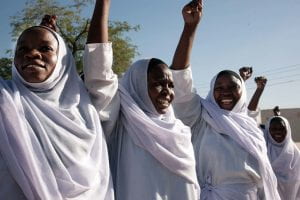by Grace Ndanu

Early pregnancy is a common thing all over the world, but it occurs most often in poorer and marginalized communities. Many girls face considerable pressure to marry early and become mothers while they are still young. Teenage pregnancy increases when girls are denied the right to make decisions about their sexual and reproductive health. Therefore it becomes a risk factor for poor maternal and child health and socio-economic outcomes. Approximately 90% of births in girls aged 15-19 in developing countries occur within early marriage where there is often an imbalance of power, where the father decides everything that happens to his daughter, leaving the subordinated mother speechless on matters concerning her daughter. Other reasons behind the teenage pregnancies are lack of information about sexual and reproductive health rights, inadequate access to services tailored to young people, sexual violence, early and forced marriage which can be both a cause and a consequence, and lastly lack of education or dropping out of school.
Teenage pregnancy highly contributes to maternal and child mortality. Complications relating to pregnancy and child birth are the leading cause of death for girls in the age bracket of 15-19 globally. Pregnant girls and adolescents also face other health risks and complications due to their immature bodies. Babies born to younger mothers are also at greater risk for poor birth outcomes such as low birth weight.
For many teenage girls, pregnancy and childbirth are neither planned nor wanted, which also happens to girls who get pregnant as a result of incest. In countries where abortion is prohibited or highly restricted adolescents – sometimes with the help of their parents – typically resort to unsafe abortions, putting their health and lives at risk. This happens frequently in developing countries. The girls who don’t want to have an abortion may face negative social and economic effects, including stigma or rejection as well as threats of violence from the parents and at times the peers. Girls who become pregnant before the age of 18 are also more likely to experience violence within a marriage or partnership. In the case where the pregnancy is kept to term and the chid is born born, some of the teenage mothers start thinking out of the box after the child is born. Some may want to go back to school and others may think that they are too old for school and instead they may want to work on short courses like catering, beading and beauty.
Globally each country has been trying to reduce teenage pregnancy rates among its members through empowerment. This is done through campaigns that involve a multitude of stakeholders, including the government, development partners, social influencers, religious leaders, media practitioners and civil society organizations. The empowerment is based on raising girls’ awareness of their sexual and reproductive health and rights protecting them from abuse and taking them to school. This also includes making sure they can access the health services which are mostly free of charge. The girls also get support on decisions they make about their future and their bodies. In addition there are organized seminars where they are taught about leadership and speaking out their minds, which helps them to bring back their confidence and self-esteem which was probably lost during the pregnancy. At times there are girls who get to have a fresh start of confidence and boldness that they didn’t have before, an indication of green pastures (which means they have moved on successfully).
